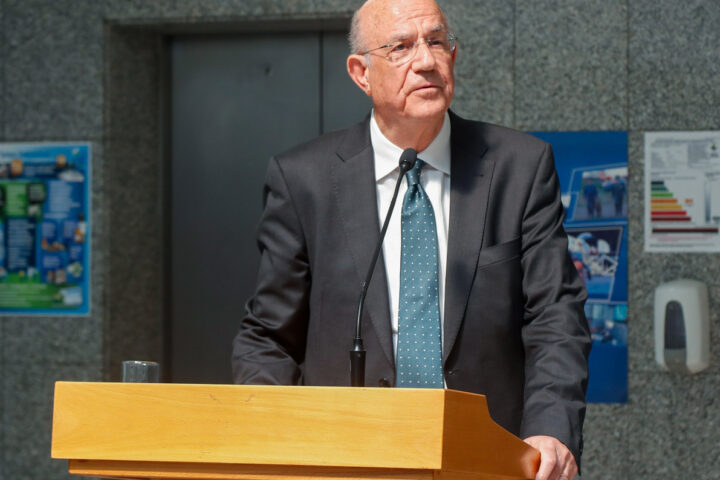Cyprus, Israel, and Greece on Monday signed a trilateral accord paving the way for constructing a €2.5 billion electricity cable linking their power grids to Europe and Asia.
A Memorandum of Understanding on the 1208-kilometre EuroAsia Interconnector was signed by Cyprus Energy Minister Natasa Pilides and her counterparts Israel’s Yuval Steinitz and Greece’s Costas Skrekas.
It was signed in Nicosia by Pilides and Steinitz, with Skrekas joining by videoconference.
“Τhis event marks another important milestone in the joint efforts of our three countries to promote regional cooperation in the field of energy,” said Pilides at the signing ceremony.
A joint statement issued by the three ministers said they “agree to promote cooperation to examine the possibility of planning, as well as the potential development and implementation of the Project”.
They called it a “major step forward” in integrating renewable energy sources, “enhancing the ability of the three countries to meet their commitments under the Paris Agreement on Climate Change”.
The project aims to interconnect the electricity grids of Israel, Cyprus, and Crete in Greece through a 2000MW undersea cable.
The first phase of the 2000 MW electricity highway is expected to be operational within 2025, linking the three countries to energy grids in Asia and Europe, said Pilides.
The European Commission acknowledges it as a key Project of Common Interest, making it eligible for EU financing.
The power cable is viewed as improving ‘energy security’ for Europe while ending Cyprus’ energy isolation as the only non-interconnected EU member state.
“Cyprus, Israel, and Greece have so much to gain from implementing the EuroAsia Interconnector…enhancing our security of energy supply and becoming exporters of energy, are but a few of the tangible benefits,” said Pilides.
The agreement also enables Israel to become a major electricity exporter to Cyprus and Europe.
Israel, Greece, and Cyprus have forged a closer regional alliance based on energy as the three countries also hope to explore and exploit their tapped and untapped natural gas resources.
“For Cyprus, the EuroAsia Interconnector will constitute a decisive step towards ending the island’s energy isolation and, consequently, our dependence on heavy fuels.
“This isolation has been a major hindrance to our economy’s overall competitiveness,” said Pilides.
The underwater cable will be laid in the Mediterranean Sea for about 1,500 km, at a maximum depth of around 2,700 meters. It is touted as the longest and deepest power cable in the world
Cyprus, Greece, and Egypt are involved in a similar electricity project, the 1396km EuroAfrica Interconnector.








